Editor’s Note: The Look Back series is on hiatus this month. We hope you enjoyed this previous article from the series written by Yukie Ohta.
Looking up at SoHo Broadway’s ornate cast iron architecture can tell you a lot about our neighborhood, but so can looking down, on SoHo Broadway’s ornate cast iron manhole covers!
Have you ever heard of companies such as for Consolidated Telegraph & Electrical Subway Company or Empire City Subway Company Limited? What about government agencies like the Department of Public Works or the Bureau of Sewers? The cast iron manhole covers tell a history of the what happened and is sometimes still happening underground in and around SoHo.
Cast in foundries, manhole covers are made for two things: to prevent pedestrians from falling into the holes they cover and to allow people (apparently all men when they were named) to access what lies beneath the sidewalk. Often weighing up to 300 pounds, these round stoppers shield an array of goings-on in the intricate web of water, sewer, and electrical works that lies beneath our visible world. Introduced in the 1800’s there is no system, no rhyme or reason for where manhole covers are placed, except that they are just where they need to be to access what is below. One therefore sees them dotting the streetscape in random patterns, some clustered together, some all alone, on the sidewalk, in the street, or just at the curb.
Cast your eye down as you walk up SoHo Broadway and you will spy the following:
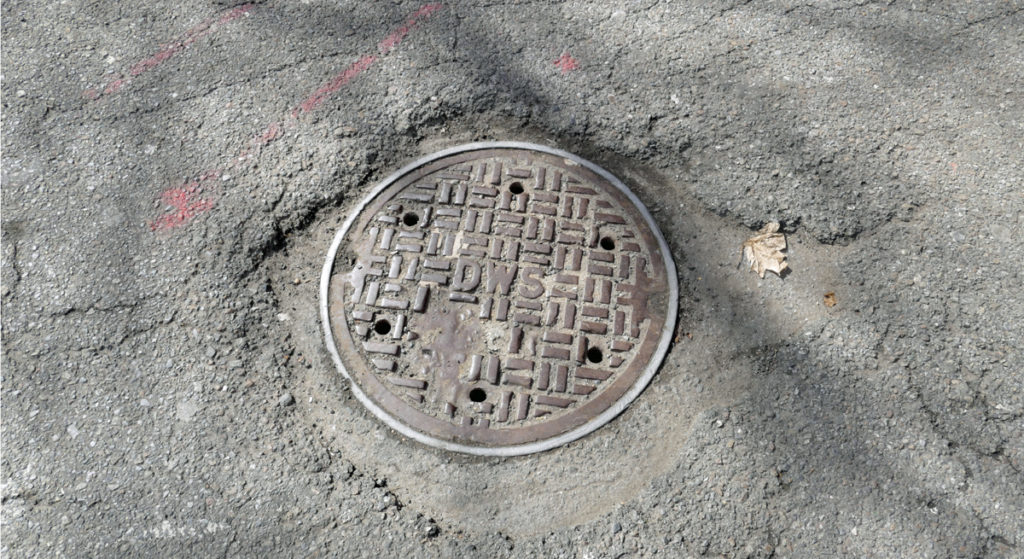
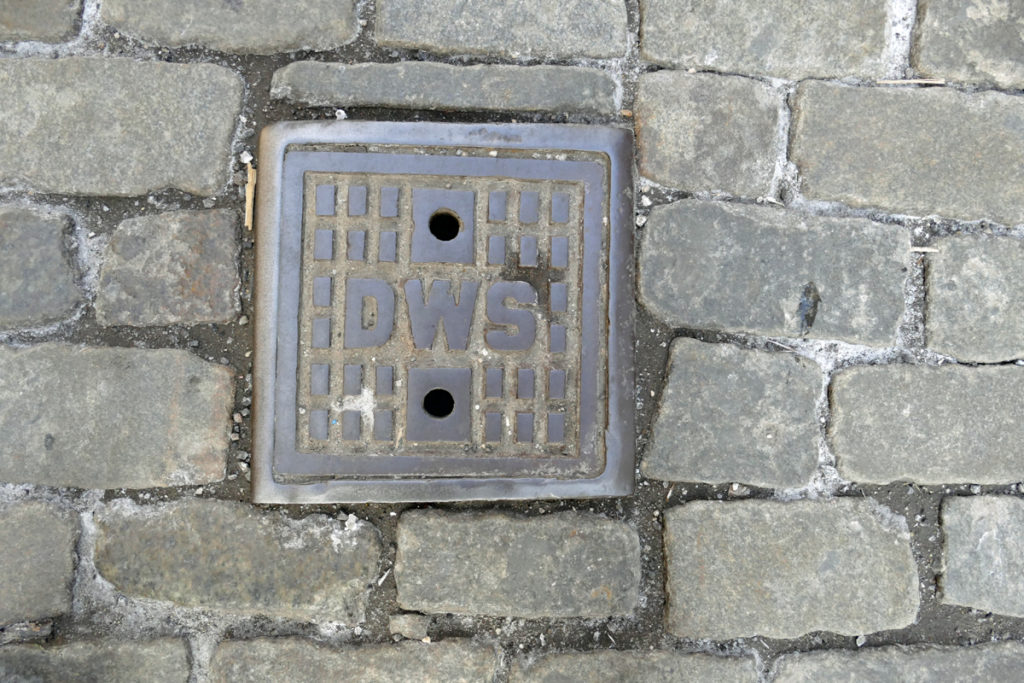
DWS stands for Department of Water Supply, and you can probably guess what these provide access to. The second one is about six inches square, too small for a man to squeeze into, so technically, it is not a manhole cover.
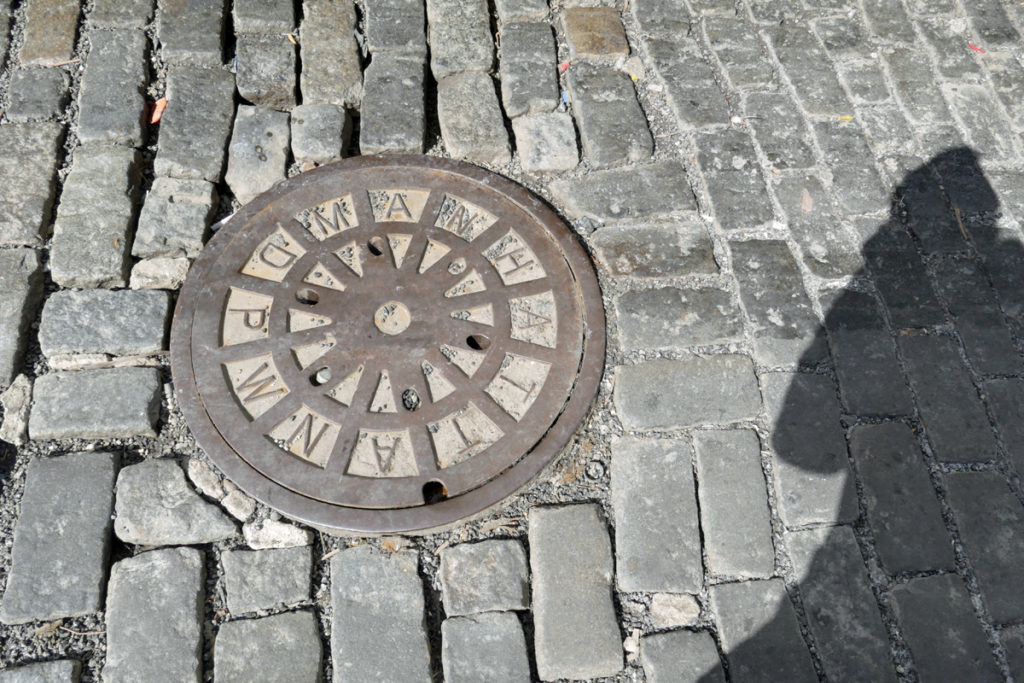
DPW stands for Department of Public Works. Established in 1939, the Department of Public Works was responsible for the maintenance of public buildings until 1973.
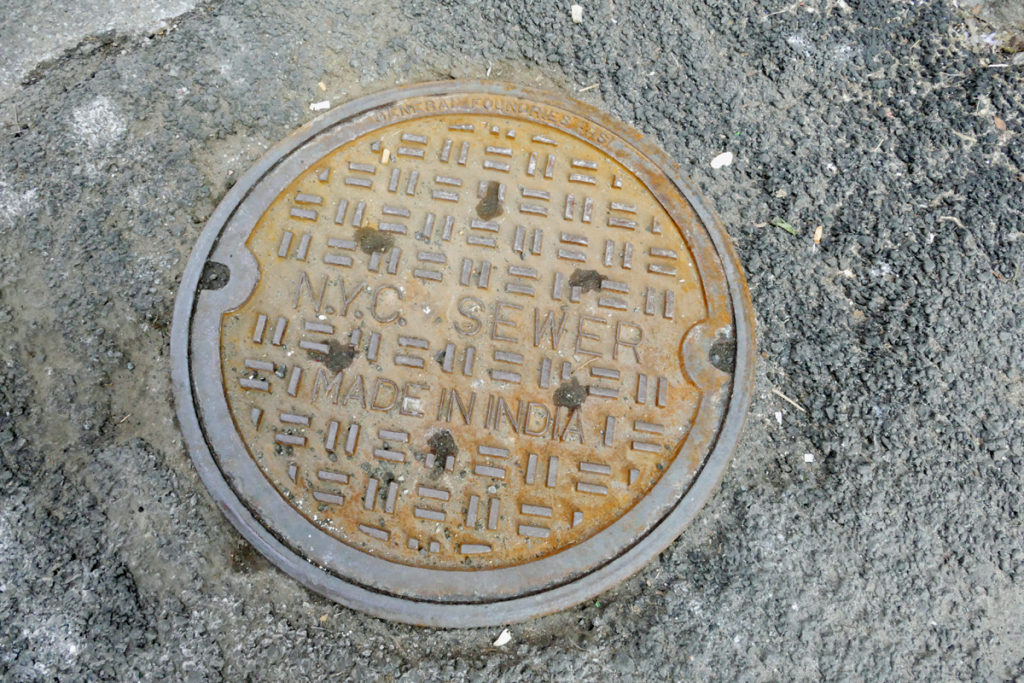
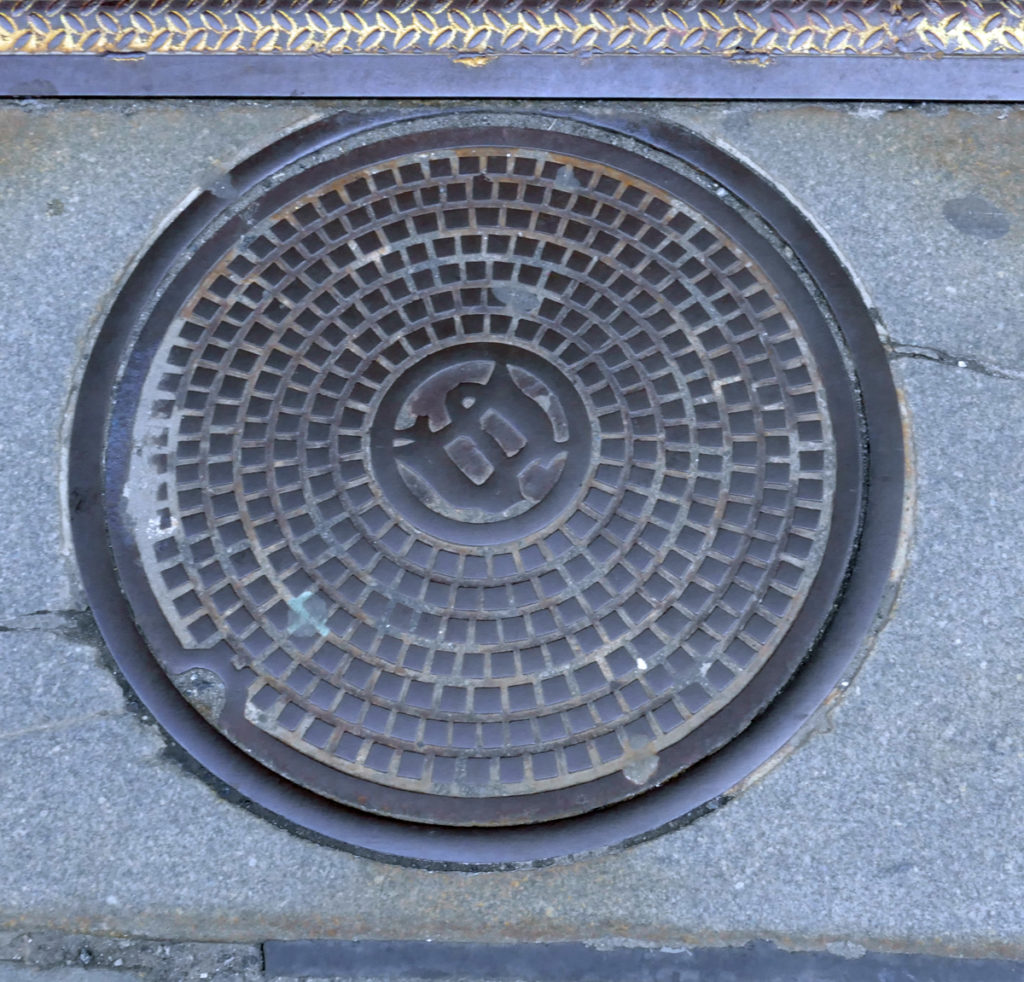
NYC Sewer and BS (Bureau of Sewers) manhole covers are used to access our city’s sewer system, which is currently under the purview of the Department of Environmental Protection. If you’ve ever wondered what it’s like down there in the labyrinthine New York sewer system, ask Steve Duncan, an urban explorer who spends his time examining the hidden infrastructure of major cities.
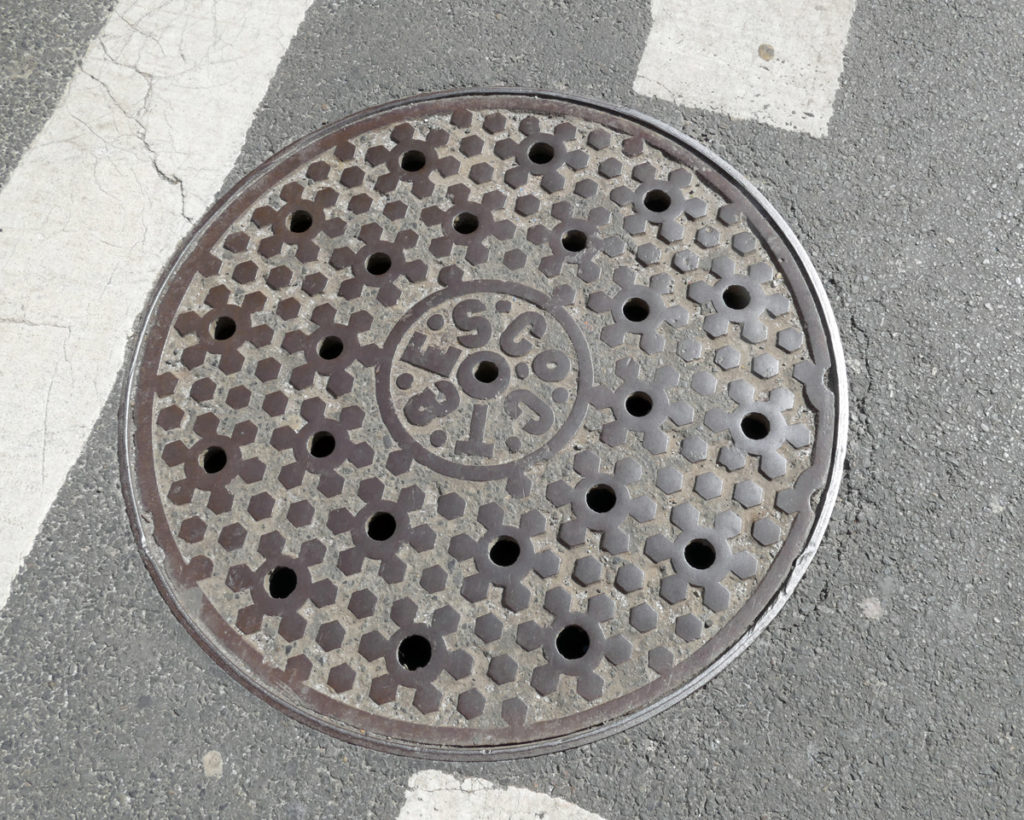
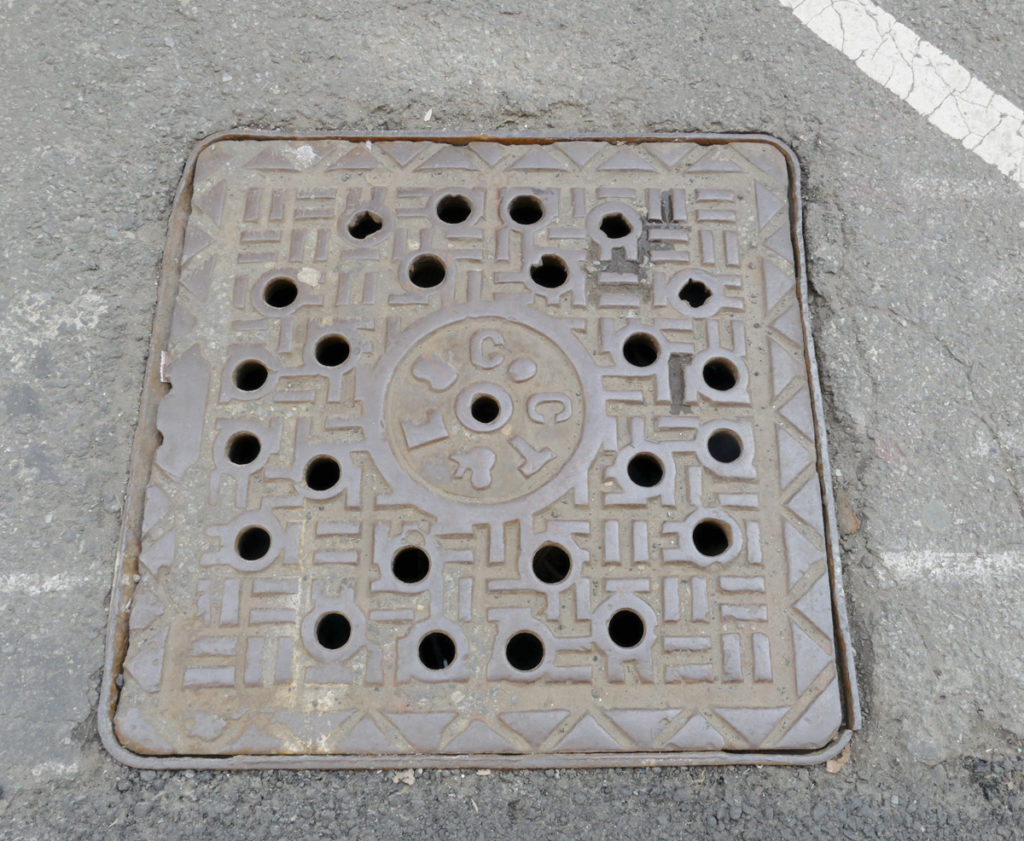
CT & ES stands for Consolidated Telegraph & Electrical Subway Company. Consolidated Telegraph was organized in 1885 for the removal of unsightly overhead wires, built miles of underground conduits for electrical wires and was later acquired by Con Edison, according to Ed Boland Jr. of The New York Times. The word “subway” refers to the underground passageway where the wires reside, and not to the underground train system.
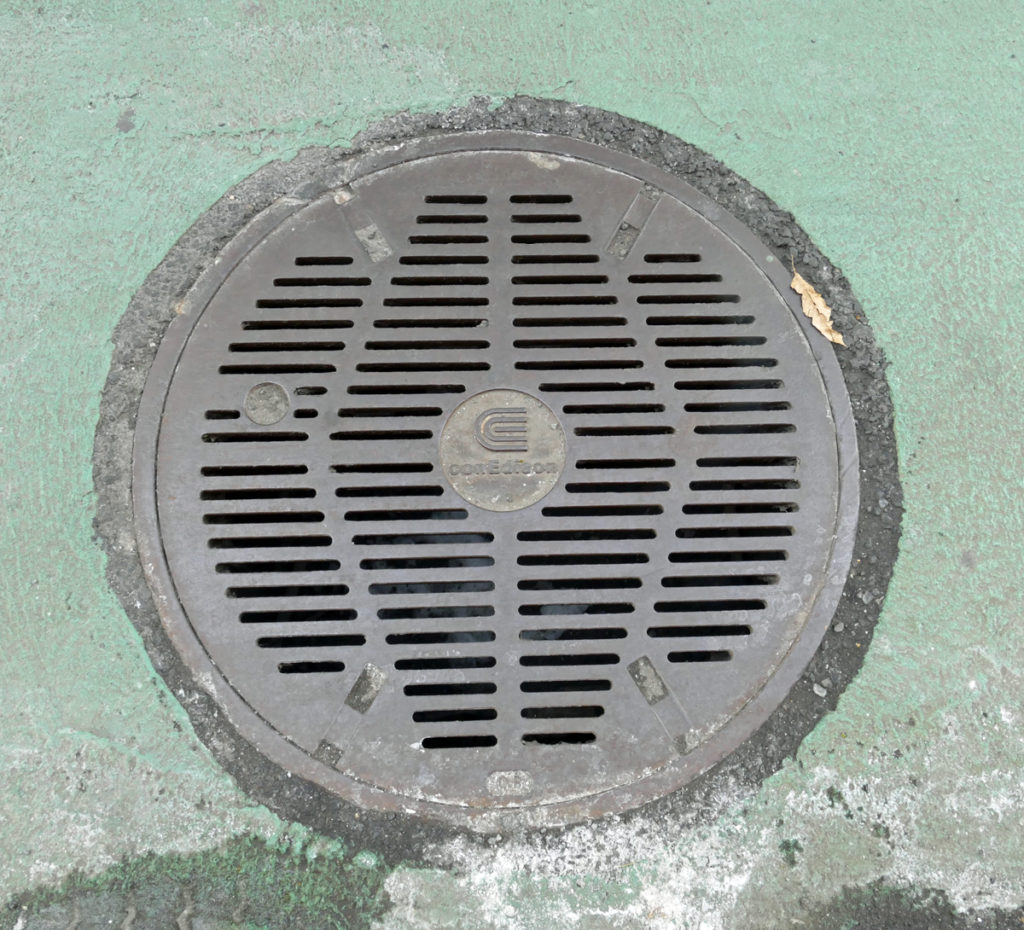
Con Edison, short for Consolidated Edison, provides electricity, gas, and steam services in the Borough of Manhattan. Con Edison manhole covers are by far the most ubiquitous throughout New York City.
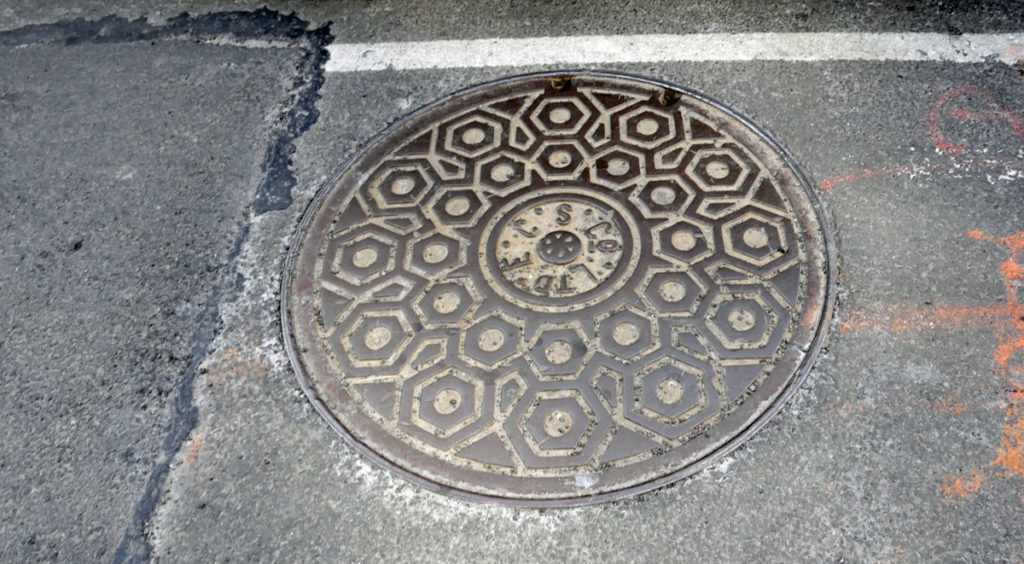
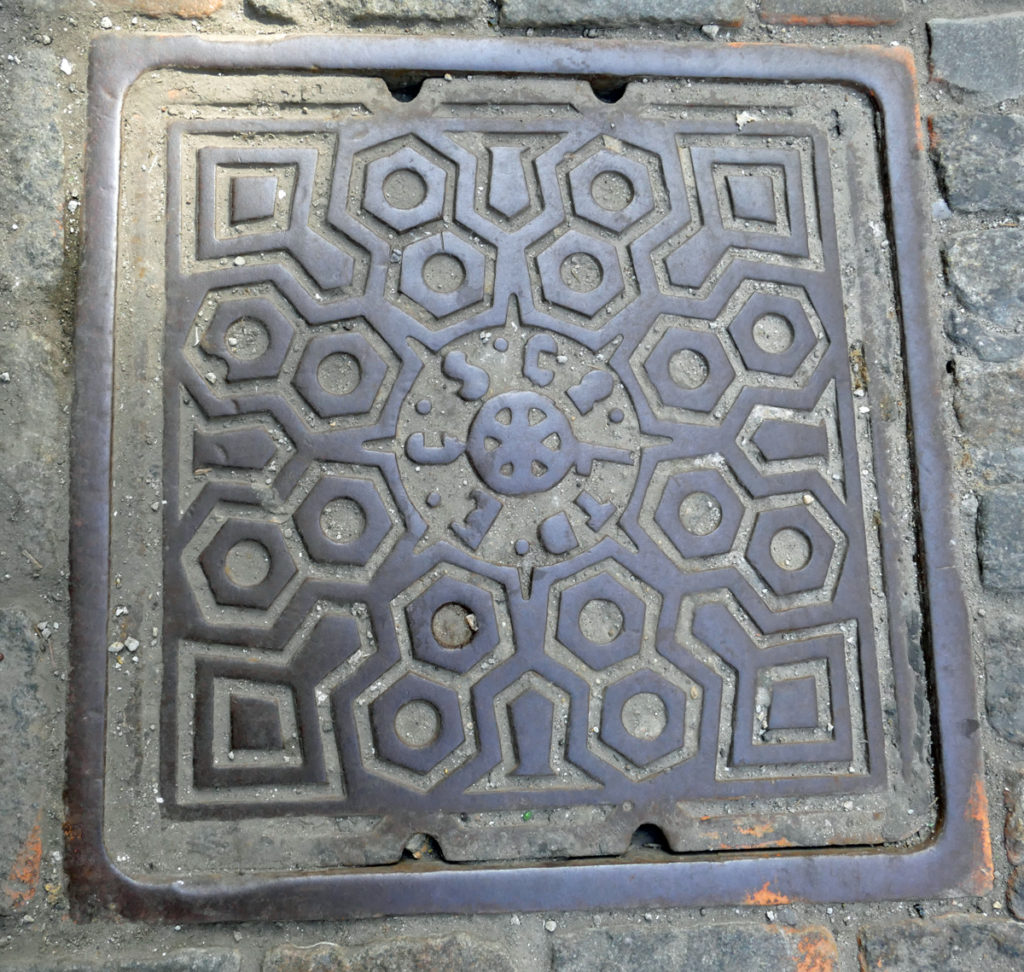
ECS Co. LIM = Empire City Subway Company Limited (also abbreviated as ECS Co LTD) is a subsidiary of Verizon. Their manhole covers are round or square, and the hexagonal design refers to telecommunications, according to Serena Jimenez at the New York Public Library.
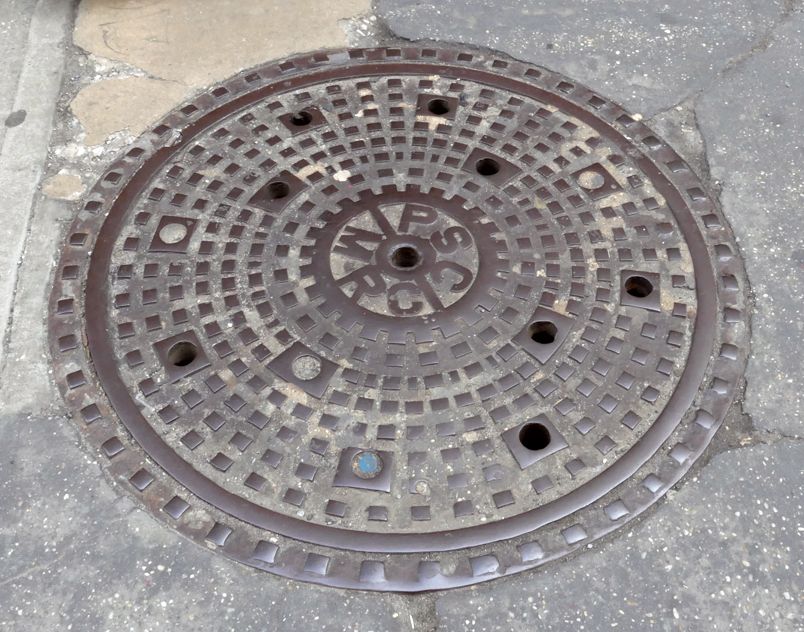
PSC MRC stands for Public Service Commission-Metropolitan Railway Company (also pictured at the top of this story). The New York Public Service Commission is the public utilities commission of the New York state government that regulates and oversees the electric, gas, water, and telecommunication industries in New York as part of the Department of Public Service, according to Wikipedia
The Metropolitan Railway Company, however, dates from the late 1800s when nycsubway.org reports that “the first underground railroad bill was defeated by the corporations then owning the street railroads, who did not want the competition of a subway…thereby defer[ing] underground transit in New York City for almost half a century.”
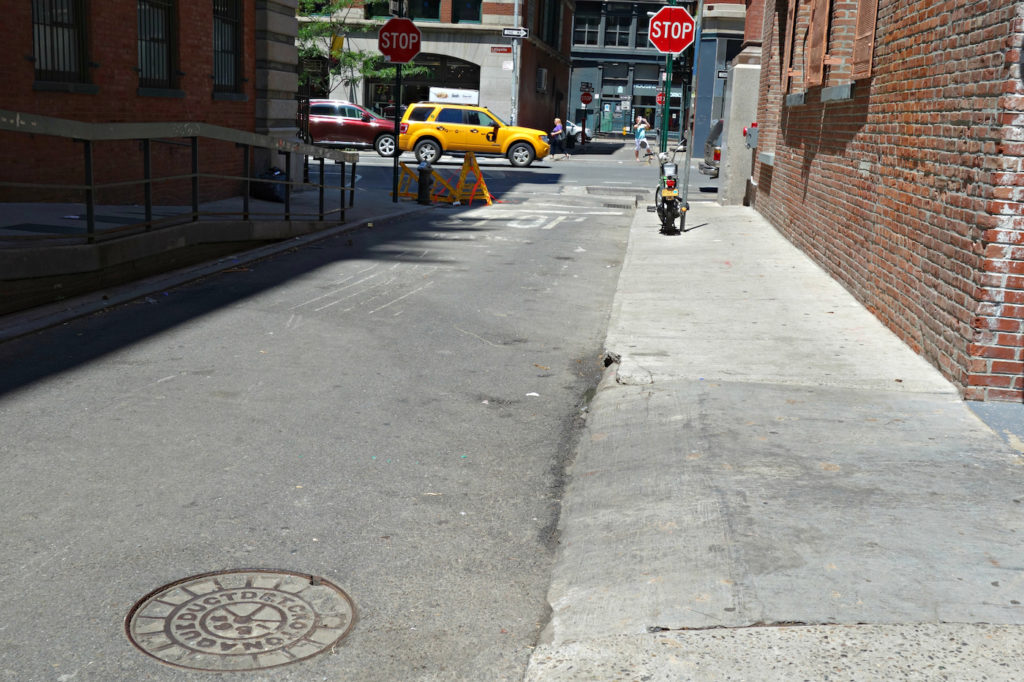
And finally, a bit of manhole cover trivia. Allison Meier writes on Hyperallergic:
On the short Jersey Street in Soho, behind the Puck Building, is what’s believed to be one of the city’s oldest manhole covers, emblazoned with the words “Croton Aqueduct” and the year 1866. It’s not the grandest historic site, and like most manhole covers is likely to have a used cigarette or scrap of trash wedged on its surface, but it’s one of those enduring reminders of the incredible engineering that’s allowed the growth of a city of millions.